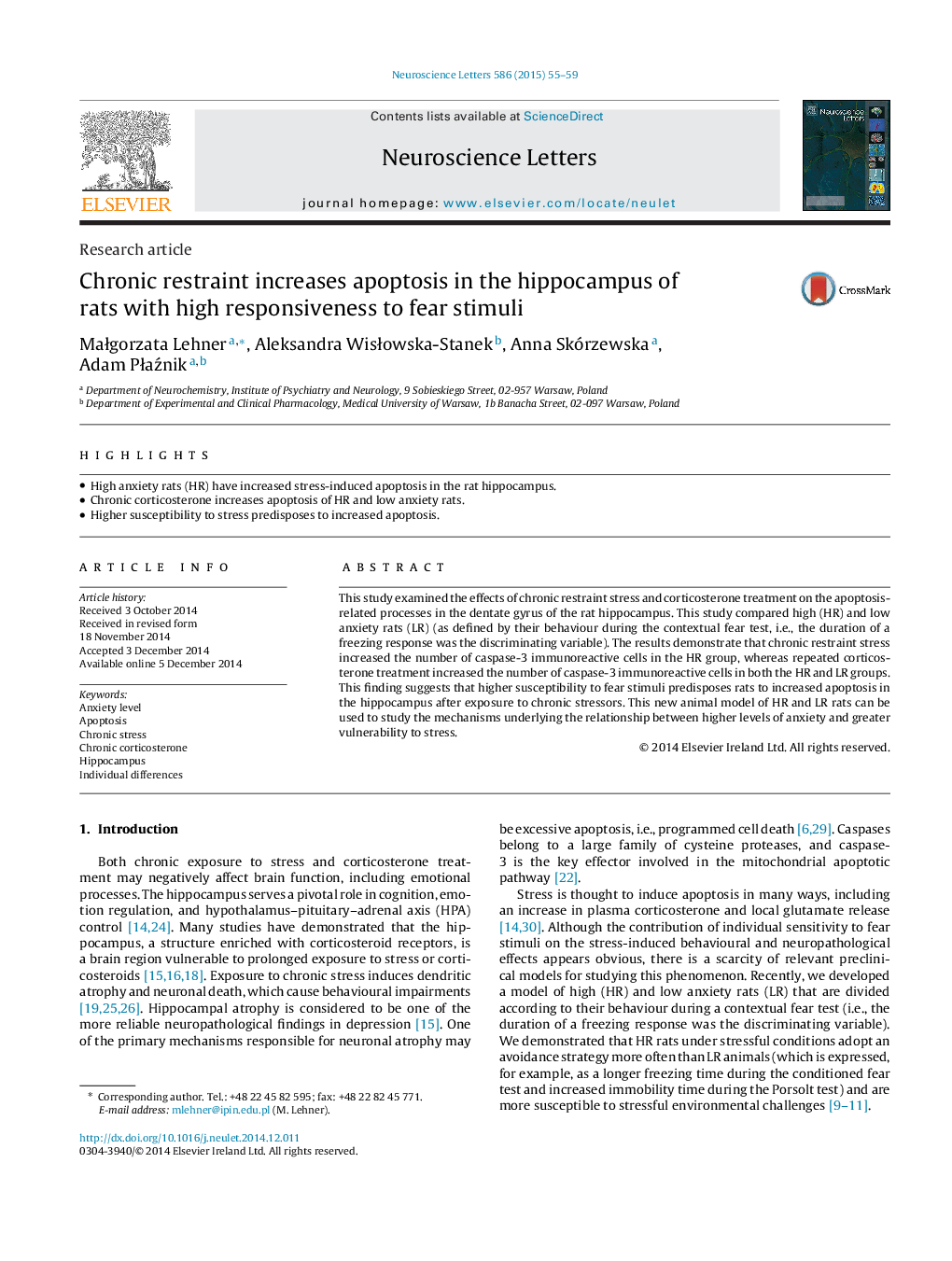| Article ID | Journal | Published Year | Pages | File Type |
|---|---|---|---|---|
| 4343595 | Neuroscience Letters | 2015 | 5 Pages |
Abstract
This study examined the effects of chronic restraint stress and corticosterone treatment on the apoptosis-related processes in the dentate gyrus of the rat hippocampus. This study compared high (HR) and low anxiety rats (LR) (as defined by their behaviour during the contextual fear test, i.e., the duration of a freezing response was the discriminating variable). The results demonstrate that chronic restraint stress increased the number of caspase-3 immunoreactive cells in the HR group, whereas repeated corticosterone treatment increased the number of caspase-3 immunoreactive cells in both the HR and LR groups. This finding suggests that higher susceptibility to fear stimuli predisposes rats to increased apoptosis in the hippocampus after exposure to chronic stressors. This new animal model of HR and LR rats can be used to study the mechanisms underlying the relationship between higher levels of anxiety and greater vulnerability to stress.
Related Topics
Life Sciences
Neuroscience
Neuroscience (General)
Authors
MaÅgorzata Lehner, Aleksandra WisÅowska-Stanek, Anna Skórzewska, Adam PÅaźnik,
